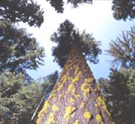The Market Illiteracy Embodied in the Politically Correct Version of Sustainability
Travis Cork III. 2010. The Market Illiteracy Embodied in the Politically Correct Version of Sustainability. W.I.S.E. White Paper No. 2010-4
Full text [here]
Selected excerpts:
The forest products industry has been practicing sustainable forestry for much of the Twentieth Century. During this time we have seen substantial gains in the management and utilization of forests, particularly on forest industry lands. “Although the forest industry occupies only about one-seventh of total U. S. timberland, its land produces a full fifth of national timber growth, a quarter of the growth of softwoods, and about a third of the annual timber harvest.” 1/
The forest industry has signed on to the sustainable forestry initiative, no doubt for public relations, but it does not need market illiterate bureaucrats and GAGs (green advocacy groups-The Nature Conservancy, Sierra Club, et al.) telling it how to practice sustainable forestry. …
Depletion is not caused by lack of resources, but by a lack of institutions, specifically private property rights and free-markets, that allow for a rational and sustained use of resources. In America, it is a manufactured crisis. If depletion of forest resources were a real problem, the responsible solution would be to find ways to increase productivity. Locking up more of the American land base (50 percent or more with Reed Noss’ Wildlands Project) and restricting utilization on remaining lands is neither a serious nor an ethical approach to depletion. But then the crisis-mongers are not concerned about the depletion of resources but the control of resources.
A statist perspective of sustainability
Sustainability is defined as
meeting the needs of the present without compromising the ability of future generations to meet their own needs.
The American Forest & Paper Association expands this to include forestry.
Sustainable forestry means managing our forests to meet the needs of the present without compromising the ability of future generations to meet their own needs by practicing a land stewardship ethic which integrates the growing, nurturing, and harvesting of trees for useful products with the conservation of soil, air and water quality, and wildlife and fish habitat.
What bureaucrat or academic can make an accurate measurement of my “sustainable” allotment of forest resources (or any other resource) in quantifiable terms; e.g., cords, tons, board feet, cubic meters, kilograms, etc.?
Who is the soothsayer, seer, or mystic that can divine what future generations will want from the forest or any resource?
Who can determine the annual removal of wood products or any resource compared to the volume estimated to be sustainable?
The answer is no one.
History tells us “no exhaustible resource is essential or irreplaceable… The relevant resource base is defined by knowledge, rather than by physical deposits of existing resources.” 7/ Unless suppressed by government force, human intelligence and ingenuity break the bonds that carrying capacity imposes on other species. …
Sustainability, as defined, is vague and inoperable highfalutin rhetoric. It is evidence that the natural resource community, at least in the public sector, academia, and some corporate boardrooms, is ignorant of market economics and responsible social behavior. This ignorance puts the productive future of the forest resources sector very much at risk.
